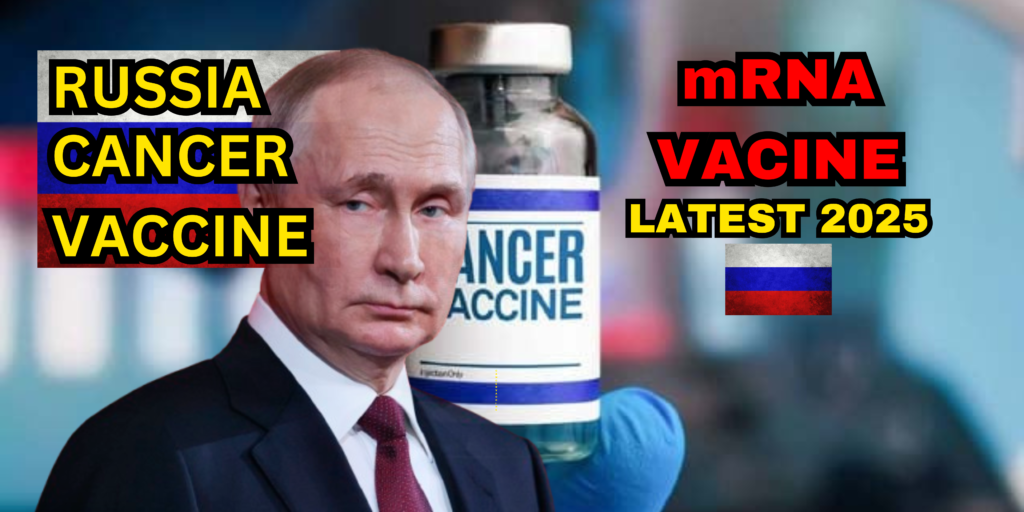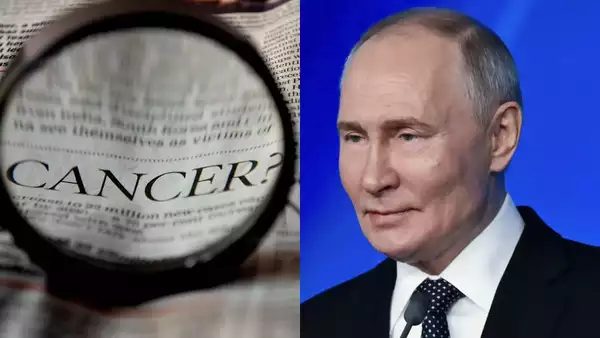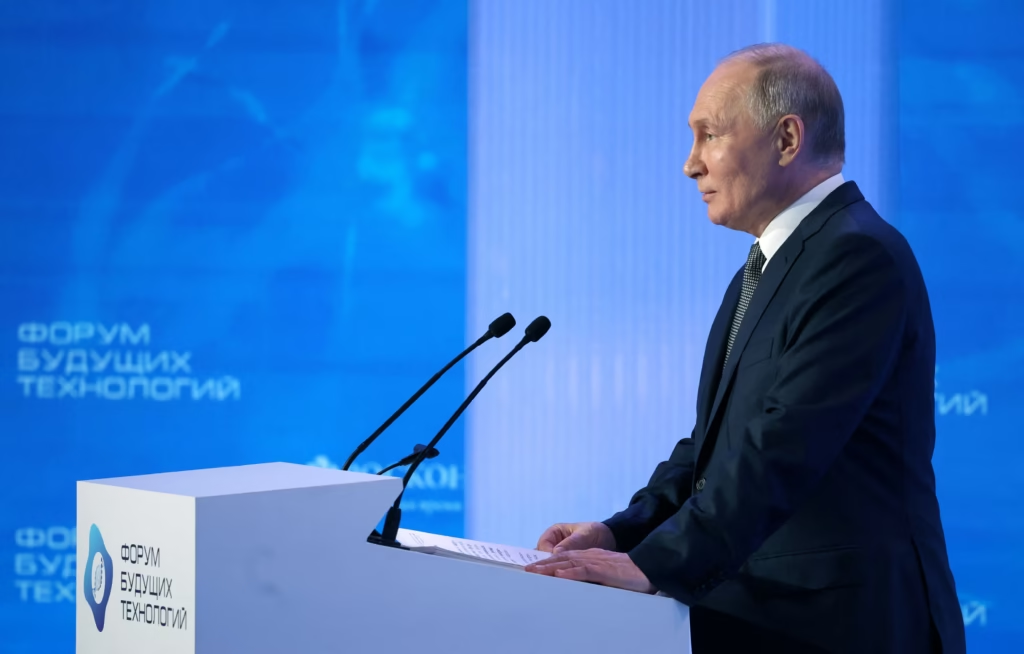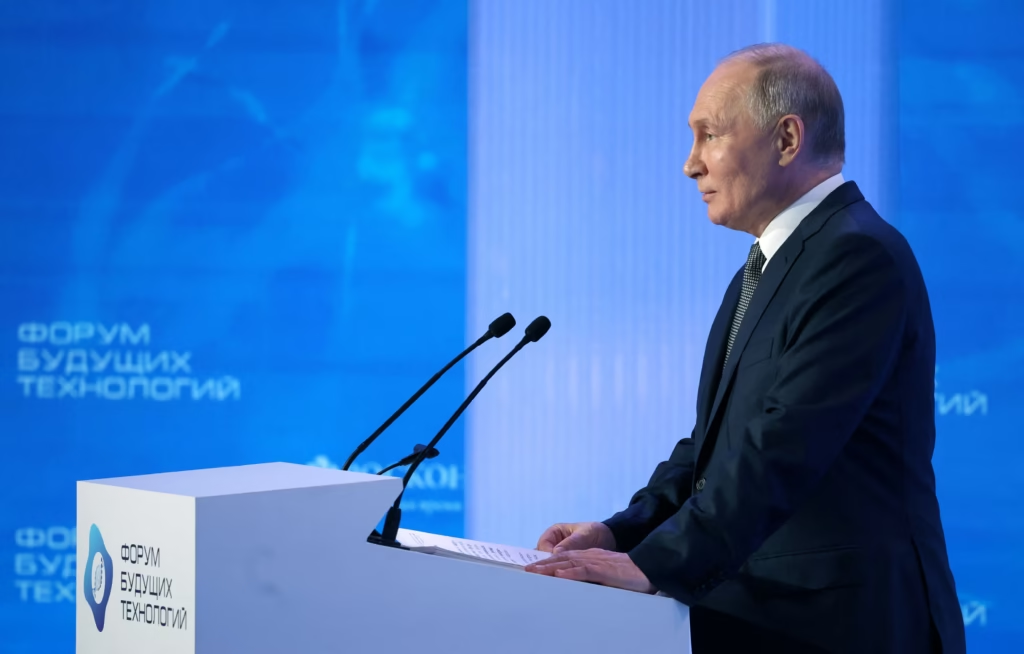Russia has announced its first mRNA-based cancer vaccine, marking a giant leap in medical science. The state-run news agency TASS revealed that patients will receive this cutting-edge treatment for free starting early 2025. Here’s everything you need to know about this groundbreaking innovation.

What is an mRNA Vaccine?
An mRNA vaccine trains the immune system by delivering messenger RNA. Unlike traditional vaccines, it provides cells with genetic instructions, enabling them to produce specific proteins that trigger an immune response. This revolutionary technology gained fame during the COVID-19 pandemic and is now targeting cancer treatment.
- Magdeburg Christmas Market Attack: 11 Dead, Dozens Injured in Terror Incident

- Big Lots to Close All Stores: The End of a Retail Era.

- “Zakir Hussain: The World Bids Farewell to a Tabla Legend”

Key Features of Russia’s Cancer Vaccine

Andrey Kaprin, General Director of the Radiology Medical Research Center at the Russian Ministry of Health, confirmed that the vaccine will be distributed at no cost to all cancer patients in Russia. During his interview with Radio Rossiya on December 15, Kaprin emphasized the vaccine’s transformative potential to change lives.
Additionally, Alexander Gintsburg, Director of the Gamaleya National Research Center for Epidemiology and Microbiology, highlighted the promising results from its pre-clinical trials. Gintsburg explained that the vaccine not only suppresses tumor growth effectively but also reduces the risk of metastases.
How AI is Transforming Personalized Cancer Vaccines
One of the most exciting aspects of this vaccine, undoubtedly, is its potential for personalization. Furthermore, Gintsburg explained how artificial intelligence (AI) could completely revolutionize the development of individualized cancer treatments.
“Currently, creating a personalized mRNA vaccine is, admittedly, a time-consuming process. However, integrating AI and neural networks could significantly reduce the time required, making it possible to complete the process in under an hour.”

Researchers aim to identify antigen compatibilities by training AI systems on a comprehensive database of 40,000 to 50,000 tumor sequences. Consequently, this innovative approach will pave the way for creating vaccines specifically tailored to the unique genetic profiles of individual patients.
- Pakistan Clinches Historic ODI Series Victory Against South Africa
- Salman Ali Agha and Naseem Shah: The Dynamic Duo Cricket Fans Can’t Get Enough Of
Collaborative Efforts Behind the Innovation
This revolutionary vaccine is the result of joint efforts by several leading Russian institutions, including:
- Gamaleya National Research Center for Epidemiology and Microbiology
- Hertsen Moscow Oncology Research Institute
- Blokhin Cancer Research Center
The project is fully funded by the Russian government. Health Minister Mikhail Murashko emphasized the importance of this collaboration in a June interview with TASS, highlighting the dedication of the country’s top scientific teams.
AI’s Role in Shaping the Future of Cancer Treatment
Artificial intelligence is poised to redefine cancer care by not only streamlining the creation of mRNA vaccines but also transforming treatment approaches. In addition, neural networks can significantly expedite the process of designing personalized treatments, thereby ensuring faster and more effective solutions for patients. Consequently, this technological advancement holds the potential to become a global standard in oncology.
Global Implications of Russia’s mRNA Cancer Vaccine

The introduction of an mRNA cancer vaccine marks a pivotal moment in medical history. Furthermore, if successful, this groundbreaking innovation could drastically improve cancer treatment worldwide, offering new hope to millions. Moreover, by providing the vaccine for free, Russia is underscoring its commitment to ensuring accessible healthcare for all.
Conclusion: A New Era in Cancer Treatment
Russia is set to revolutionize oncology with its mRNA cancer vaccine. Researchers expect to make this groundbreaking treatment available by 2025, marking a significant leap forward in personalized medicine. As AI and mRNA technologies advance, they are paving the way for a brighter future in cancer care.
Stay informed as we bring you the latest updates on this transformative development and its potential to impact global healthcare.







